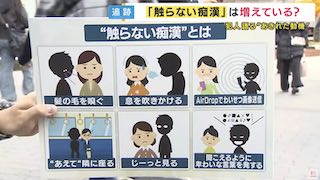Feb 25 (newsonjapan.com) - If you ever wondered why are Japanese businesses so resilient, well the answer is a little bit complicated but it’s also simple.
Businesses that are deeply hit by pandemic and seismic shifts, it’s highly important to recognize that many of the Japanese companies continue to operate nowadays, despite of facing hard financial setbacks from these disasters. However, these not only manage to survive, but thrive. How?
One of the reasons, states Harvard Business School professor Hirotaka Takeuchi, was their dedication when it comes to their response to the needs of employees and community first, in order to serve the common good. Less important for these companies, Takeuchi says, was pursuing layoffs and many other cost-cutting measures. And Have you even been home and got nothing to do? You get so bored that you just end up in bed staring at walls because you found nothing you want to do. Well, now there’s a fun solution and you can earn money from it, which is something really good. You have to search for casimaru.com and from there, you’ll be able to discover a world filled with fun and much more. It’s definitely worth the try if you’re bored!
The professor says that a lot of Japanese companies aren’t popular with Wall Street types because they’re not focused on gaining superior profitability and also not interested in maximizing shareholder value. They, instead, talk about creating lasting changes in society.
And when it comes to their reward for thinking beyond profits? These businesses tend to live for a long time. In fact, regarding a global map, Japan definitely stands out for corporate longevity; 40% of companies have remained opened more than 300 years are located in the country.
Yakult delivers water and noodles to those who survived
These are named “Yakult Ladies”, a team that delivers probiotic drinks to customers’ homes. Shortly after the earthquake and tsunami destroyed Fukushima, CEO Hiromi Watanabe heard that these workers were fearful the region would never recover and that people who lived there would flee since they had no food, water and electricity and, therefore, the company would lose all its customers, and employees would lose their jobs.
The company was certainly in trouble. The CFO noted that Yakult had lost 30% of the market and, of course, suggested reducing the salesforce. However, instead of cutting staff Watanabe reassured employees that the company would do everything to keep their jobs, by delivering health and emotional support to the victims.
The supply of the probiotic drinks was very weak since the Yakult factory shut down and even some Yakult Ladies ran out of products, some even decided to deliver to deliver products for free.
With the coffers nearly empty, Watanabe asked for a loan and kept the Yakult Ladies, paying them 80% of their normal pay. Once the delivery of Yakult products resumed, it only took 5 months of sales until they reached the same level as the previous year.
Japanese companies think long-term
Takeuchi says that these volatile periods are the best opportunity for leaders to put themselves in the life of those who are actually suffering and to take action in order to make the future, which is important.
He also says that there are many companies stuck in short-termism, focusing on a strategic plan for only five years. But many companies in Japan think about 100 or 200 years from now and envision the kind of future they want to create. During the tsunami disaster, the key mindset of executives was very simple: They had to empathize with others. And, therefore, companies ought to do the same thing nowadays, during this pandemic, empathizing with those who are, unfortunately, suffering and they have to figure out a way to help out.
Japan is definitely a country that has companies that look forward and not backwards, which is what makes them so successful and highly accomplished. This is necessary all over the world. However, the Japanese culture is different and it affects how employers think, especially when it comes to their employee’s well-being. This is very important, since they will not just layoff them without an excuse.














